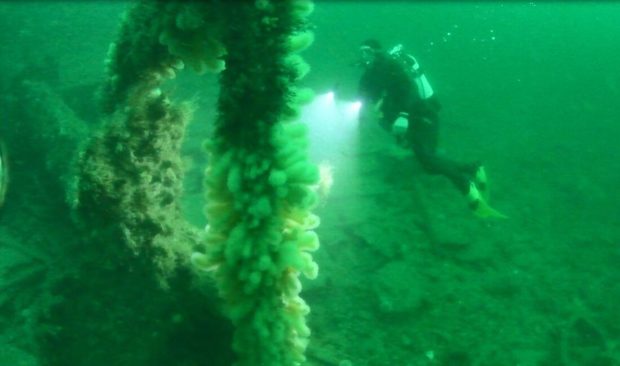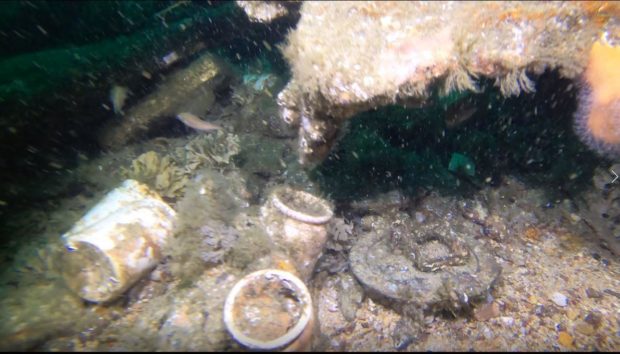A century-old mystery has finally been solved beneath the waves off Orkney after amazing detective work by divers.
After years of painstaking research, diving company partner Kevin Heath has discovered the wrong German submarine has been blamed for the sinking of the SS Ruby in World War I.
At around 10am on March 29 1917, the small cargo ship was making a routine trip back to Kirkwall from Leith when she hit a mine laid by a German U-boat.
She sank, killing six of the seven men on board. All that is known of the lucky survivor to this day is that he was from Wick.
Now – over a century later – the wreck has finally been found 164ft down by Stromness-based Sula Diving.
Mr Heath, 58, from the company said it was an “astonishing” find that took years of research, but just three hours of searching – once the likely site had been narrowed down.
SS Ruby had lain for 104 years on the seabed, with no one quite sure of her whereabouts.
‘Solving one mystery lead to another’
Mr Heath had been keen to find the wreck for 20 years, but only managed to do so after uncovering another tragic site in the winter of 2019.
His team discovered a seemingly ordinary “mound” on the otherwise flat seabed in Orkney was actually the last resting place of 15 sailors who perished when destroyer HMS Albacore was hit by a mine on March 9, 1917.
Albacore got no further than the entrance when she struck a mine laid by UC55 – and not UC44 as previously thought.
The blast tore the bow section as far back as the bridge and killed 18 men. Only three bodies were recovered.
The wrecked bow, and grave site, was discovered by the Sula Diving team during a separate mission.
That helped give Mr Heath, Michael Lowrey and Simon Schnetzke the breakthrough they needed to track down the Ruby, with research suggesting another U-boat had been responsible for its sinking – giving them a more accurate area to search.
U-boat logged hearing Ruby explosion
On the morning of March 29, 1917, the Ruby passed along the swept channel steaming west into Kirkwall.
Mr Heath said: “At 10.10am, approximately two miles south of Auskerry, SS Ruby struck a mine and sank almost instantly. A deckhand who was working in the galley jumped overboard as the ship went down and clung to a barrel.
“He then swam to the ships boat which had floated free. It was 30 minutes before he was picked up by a patrol vessel. He was the only survivor.”
Many thought the Ruby had gone down in the Shapinsay String , but once Mr Heath ruled that out by establishing which U-boat had laid the weapon, and reading through its logbook to find a map of its mines, he was able to pinpoint its location.
He realised the U-boat – UC-42 – would only have been around five miles away when the Ruby hit the mine, its crew had logged hearing the explosion.
On June 8, Bertrand Taylor and Keith Rendall made the dive and discovered the wreck.
The Ruby now lies just south of Auskerry, and is opened up on the seabed along with what remains of the cargo – bags of cement, and lots of empty jam jars.
Mr Heath said: “The wreck is upright with the hull collapsed on the seabed. The bow is to the south east and is very badly damaged which was most likely from the mine.
Loss of the Ruby hit Orkney hard
“The loss of the Ruby was felt greatly in Orkney, and especially in Westray, where four of the crew were from. None of their bodies were ever recovered.
“Solving one mystery led to solving the other. Though both losses were felt strongly locally, I felt their sacrifice needed wider recognition and I’m glad we have now done that and brought some comfort to their descendants.”
Sula Diving were assisted by Ian Rendall, great-grandson of George Rendall, a mate on SS Ruby. His brother Stewart, an able seaman, also died.
The other men lost were: James Marwick, fireman, Kirkwall; William Mason, master, Westray; John Rendall, fireman, Westray; and George David Sevis, engineer, Edinburgh.


